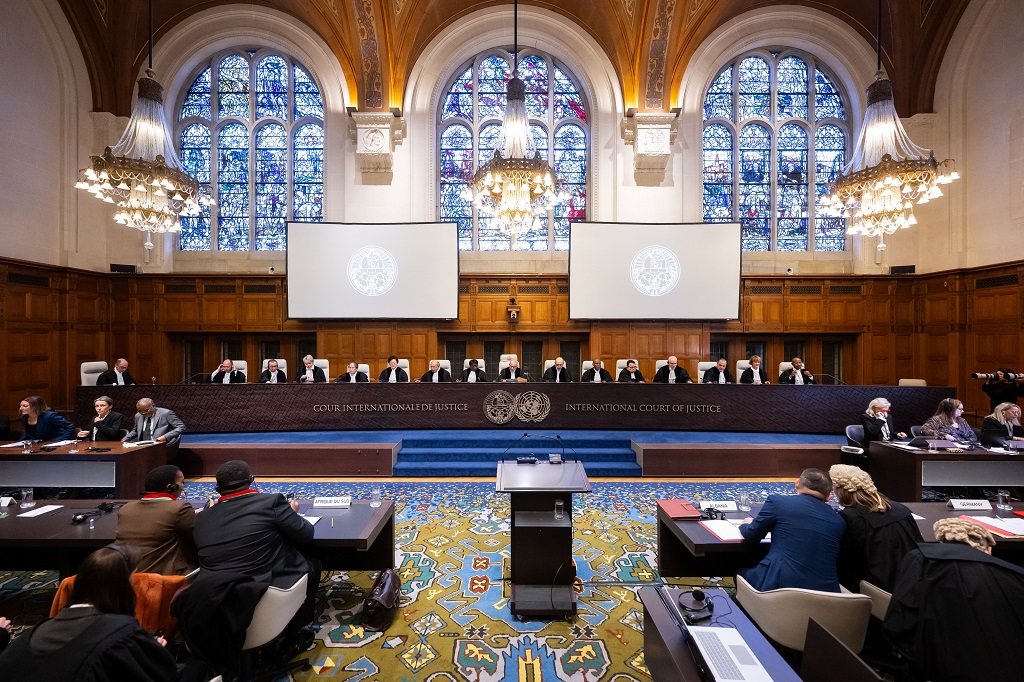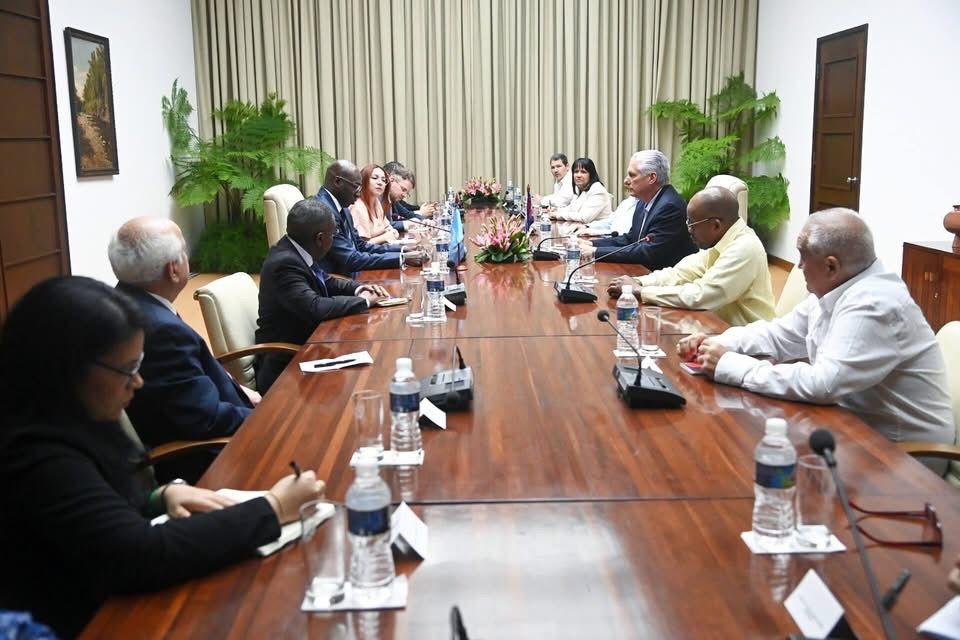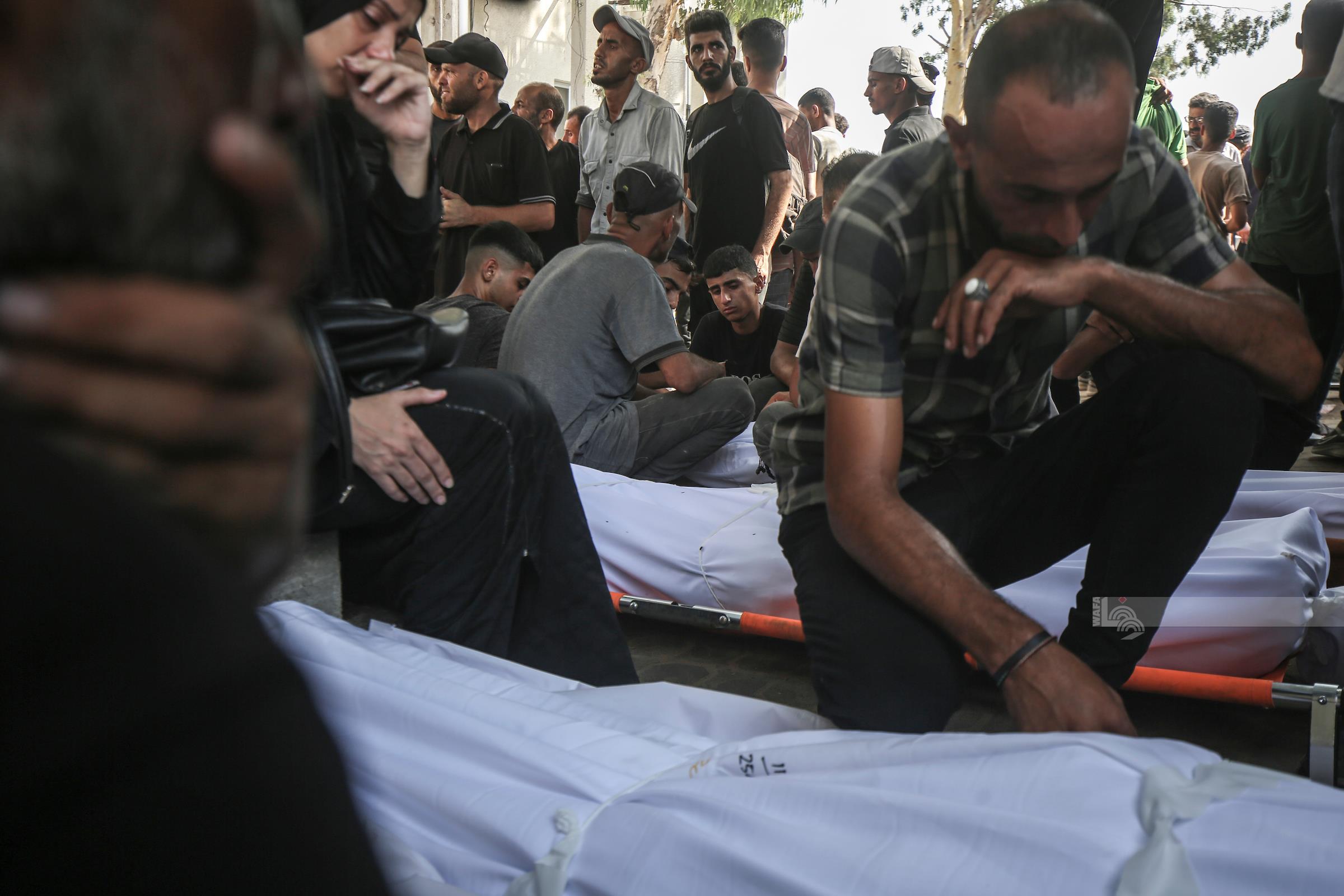THE HAGUE, April 28, 2025 – The International Court of Justice (ICJ) in The Hague, Netherlands, began public hearings on Monday regarding an advisory opinion on Israel's obligations toward the United Nations and its agencies in the occupied Palestinian territories.
Elinor Hammarskjöld, legal advisor representing UN Secretary-General António Guterres, confirmed that Israel has obligations as an occupying power, including ensuring the safety of medical workers and facilitating the work of humanitarian organizations to safeguard civilian lives.
In her statement before the court, she emphasized that, as an occupying power, Israel is required to secure humanitarian needs in the occupied territories and manage the areas under its control according to international law.
Hammarskjöld also stated that Israel had breached its obligations regarding the immunity of UN personnel and reaffirmed the organization's position against any external interference in the functioning of international agencies.
The suspension of UNRWA operations by Israel was described as an overreach of authority that potentially signals a unilateral extension of sovereignty over occupied Palestinian land, including East Jerusalem. This action, the UN argued, contravenes Israel’s international commitments and impedes vital humanitarian efforts.
Furthermore, she affirmed that respecting international law is essential for protecting civilians and allowing UN staff to carry out their work without facing unacceptable risks.
In response to Israel's claims against UNRWA, she stated that the UN takes allegations of bias within its agencies seriously, and necessary investigations will be carried out to address the concerns and ensure their neutrality.
In its pleadings, Palestinian Ambassador to the Netherlands Ammar Hijazi, stated that the Palestinian people are being subjected to starvation, bombing, and forced displacement by Israel, the occupying power. He pointed out that Israel has been preventing the entry of food, water, medicine, medical supplies, and fuel into the Gaza Strip for the past two months, a policy supported by Israel’s highest court, which rejected multiple appeals to allow aid into Gaza.
He stressed that this man-made disaster targets life itself, with death threatening the lives of Palestinians, including due to hunger, which has already claimed the lives of 59 children.
He continued, "We are here because the General Assembly asked the Court to determine Israel’s legal obligations concerning the provision of humanitarian aid by the United Nations, international organizations, and third-party states – aid essential for the survival of Palestinian civilians – as well as regarding the exercise of the Palestinian people's right to self-determination.”
He further explained that this request comes in response to international outrage over Israel’s systematic targeting, banning, and obstruction of these entities, including its enactment of legislation preventing UNRWA from carrying out its mandate in the occupied Palestinian territories, including East Jerusalem.
Hijazi clarified that Palestine will present evidence during these proceedings on the immediate, medium-term, and long-term destructive consequences of Israel’s illegal policy on the Palestinian people, impacting every aspect of their fundamental rights and their continued existence.
He also noted that Palestine would demonstrate to the Court how Israel's prohibited actions extend to the occupied West Bank, including East Jerusalem, as the goal of these actions, as acknowledged by senior Israeli leaders, is the permanent annexation of Palestinian land and the ethnic cleansing of Palestinians.
He explained that Palestine would argue that Israel's actions constitute flagrant and persistent violations of its obligations, including the right to self-determination, the prohibition of forced displacement, the prohibition of using starvation as a method of warfare, and the protection of UN personnel and other humanitarian organizations.
Hijazi added that the Palestinian delegation will request the Court to issue an advisory opinion that clearly states that Israel’s occupation of the occupied Palestinian territories, including East Jerusalem, is illegal and must end immediately; that Israel's actions in preventing humanitarian aid, and obstructing the work of the United Nations and other humanitarian organizations, violate its obligations under international law; that all states must refrain from supporting or assisting the illegal occupation and take effective measures to ensure its ending; and that the United Nations and other international organizations must continue their humanitarian work and fulfill their responsibilities in accordance with international law, despite Israeli obstruction.
According to the Court's agenda, the hearings are scheduled to take place from April 28 to May 2, 2025. Forty-four countries and four international organizations have expressed their intention to participate in the proceedings before the Court.
This move follows a decision adopted by the United Nations General Assembly in December of last year, based on a proposal by Norway. The resolution calls on the International Court of Justice to issue an advisory opinion clarifying Israel's obligations regarding the facilitation of urgent humanitarian aid to Palestinians and ensuring that such assistance is not hindered.
T.R.













